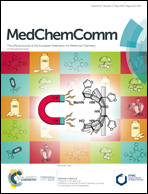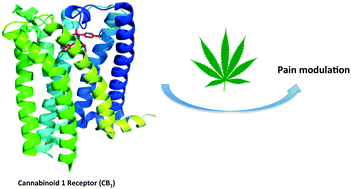
“Complimentary alternative medicine use is common in women with gynecologic cancers. Cannabinoid receptors are potential therapeutic targets in ovarian cancer. Communication with patients is critical regarding use of alternative therapies.” https://www.ncbi.nlm.nih.gov/pubmed/31193514
In this case report, we present the case of a female patient who demonstrated disease response after declining standard therapy and taking a combination of Laetrile and CBD oil. Previous clinical trials in humans have demonstrated no therapeutic effect in cancer patients taking Laetrile. However, basic science studies have identified cannabinoid receptors in ovarian cancer as potential therapeutic targets for cannabinoid use in treating malignancy.
In this case report, we highlight a dramatic response to combination Laetrile and CBD oil in a patient with widely metastatic Low grade serous ovarian cancer (LGSOC).
Laetrile is a semi-synthetic version of amygdaline, a chemical compound found in plants and fruit seeds. Both Laetrile and amygdaline contain cyanide within a common structural component. Theoretically, Laetrile has anti-cancer effects when cyanide is released via enzymatic degradation. However, a Cochrane review published in 2015 found no randomized or quasi randomized control trials supporting the use of Laetrile in cancer patients. Further, they argued that due to the risk of cyanide poisoning, Laetrile use should be discouraged in patients seeking the compound for alternative cancer therapy. Concerns for toxicity in combination with inability to demonstrate clinical efficacy led to an effective ban on the substance by the FDA in the 1980s. Nevertheless, the substance remains available for purchase in variable formulations commercially.
Cannabidiol (CBD) is a compound naturally derived from the cannabis plant.
The anti-cancer effects of CBD have been evaluated predominantly in the laboratory setting. Interestingly, ovarian cancer cell lines express GPR55, a target that is inhibited indirectly by CBD and that plays a role in prostate and ovarian cancer cell proliferation. Mouse model studies have also demonstrated cannabinoids inhibit tumor cell growth and induce apoptosis in gliomas, lymphomas, prostate, breast, lung, skin, and pancreatic cancer cells.”
https://www.sciencedirect.com/science/article/pii/S2352578919300517?via%3Dihub







 “Age-related cognitive decline has been associated with proinflammatory cytokines, yet the precise relationship between cognitive decline and cytokine load remains to be elucidated. β-caryophyllene (BCP) is a cannabinoid receptor 2 (CB2) agonist with established anti-inflammatory effects that is known to improve memory and increase lifespan. It is of interest to explore the potential of BCP to reduce age-related cognitive decline and proinflammatory cytokine load. In this study, we assessed changes in circulating cytokines across the lifespan, memory performance in young and aged mice, and the effects of BCP on memory function and cytokine load. The plasma levels of 12 cytokines were assessed in male Swiss-Webster mice at 3, 12, and 18 months of age using multiplexed flow cytometry. Working memory was compared in 3 and 12 month-old mice using spontaneous alternations. A dose-response function (100-300 mg/kg, subchronic administration) for BCP-induced memory restoration was determined in 3 and 12 month-old mice. Finally, the effects on cytokine levels of the peak memory enhancing dose of BCP was assessed in 18 month-old mice. Circulating levels of several cytokines significantly increased with age. Multilinear regression analysis showed that IL-23 levels were most strongly associated with age. Aged mice showed deficits in working memory and higher levels of IL-23, both of which were reversed by BCP treatment. BCP appears to reverse age-associated impairments in memory and modulates cytokine production. IL-23 may play a significant role in the aging process, and future research should determine whether it has utility as a biomarker for novel anti-aging therapeutics.”
“Age-related cognitive decline has been associated with proinflammatory cytokines, yet the precise relationship between cognitive decline and cytokine load remains to be elucidated. β-caryophyllene (BCP) is a cannabinoid receptor 2 (CB2) agonist with established anti-inflammatory effects that is known to improve memory and increase lifespan. It is of interest to explore the potential of BCP to reduce age-related cognitive decline and proinflammatory cytokine load. In this study, we assessed changes in circulating cytokines across the lifespan, memory performance in young and aged mice, and the effects of BCP on memory function and cytokine load. The plasma levels of 12 cytokines were assessed in male Swiss-Webster mice at 3, 12, and 18 months of age using multiplexed flow cytometry. Working memory was compared in 3 and 12 month-old mice using spontaneous alternations. A dose-response function (100-300 mg/kg, subchronic administration) for BCP-induced memory restoration was determined in 3 and 12 month-old mice. Finally, the effects on cytokine levels of the peak memory enhancing dose of BCP was assessed in 18 month-old mice. Circulating levels of several cytokines significantly increased with age. Multilinear regression analysis showed that IL-23 levels were most strongly associated with age. Aged mice showed deficits in working memory and higher levels of IL-23, both of which were reversed by BCP treatment. BCP appears to reverse age-associated impairments in memory and modulates cytokine production. IL-23 may play a significant role in the aging process, and future research should determine whether it has utility as a biomarker for novel anti-aging therapeutics.”

